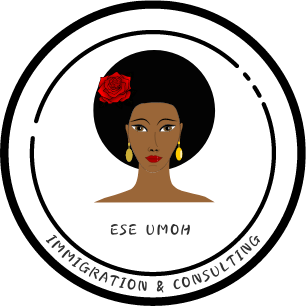Dear future neighbour,
If you’ve ever looked at Nova Scotia’s immigration options and felt completely overwhelmed, you’re not alone. The province used to have ten different immigration streams under its Nominee Program and keeping track of which one applied to you was honestly a headache. Well, that just changed.
As of February 18, 2026, Nova Scotia brought all ten of those streams together under just four clear categories. Same eligibility rules, less confusion. Think of it as tidying up a messy room everything is still there, it’s just a lot easier to find what you’re looking for.
The four Nova Scotia Nominee Program NSNP pathways include:
1. Skilled Worker:
This one is for people who already have a job offer from an employer based in Nova Scotia. Whether you’re in construction, healthcare as a physician, or another in-demand trade, this stream likely covers you. You need to be between 21 and 55, have some relevant work experience, and meet basic language requirements.
Construction workers can even skip the high school diploma requirement if they completed an industry training program. What matters most here is that you have a valid job offer from an employer in the construction sector and that your role falls under one of the qualifying occupations listed for this pathway:
- Bricklayers – 72320
- Carpenters – 72310
- Concrete finishers – 73100
- Construction managers – 70010
- Construction trades helpers and labourers – 75110
- Contractors and supervisors, electrical trades and telecommunications occupations – 72011
- Contractors and supervisors, mechanic trades – 72020
- Contractors and supervisors, other construction trades, installers, repairers and servicers – 72014
- Crane operators – 72500
- Electricians (except industrial and power system) – 72200
- Heating, refrigeration and air conditioning mechanics – 72402
- Heavy equipment operators – 73400
- Heavy-duty equipment mechanics – 72401
- Home building and renovation managers – 70011
- Industrial electricians – 72201
- Material handlers – 75101
- Other trades helpers and labourers – 75119
- Plasterers, drywall installers and finishers and lathers – 73102
- Residential and commercial installers and servicers – 73200
- Roofers and shinglers – 73110
- Sheet metal workers – 72102
- Welders and related machine operators – 72106
If you’re a physician, you’ll need a confirmed job offer from either the Nova Scotia Health Authority (NSHA) or the Izaak Walton Killam Health Centre (IWK) in an eligible medical role to qualify under this pathway.
- General practitioners and family physicians – 31102
- Specialists in clinical and laboratory medicine – 31100
- Specialists in surgery – 31101
2. Nova Scotia: Express Entry:
This is for people who already have a profile in Canada’s federal Express Entry system and have at least one year of work experience in Nova Scotia in a skilled occupation. If you’re a physician with a job offer from Nova Scotia Health Authority or IWK, there’s also a dedicated path for you here.
3. Entrepreneur:
Got business ownership experience and the financial resources to invest in a Nova Scotia business? This stream is for you. The investment requirement starts at $400,000 if you’re setting up outside Halifax, or $600,000 within Halifax. Recent international graduates who’ve already been running a business in the province can also qualify through a separate pathway.
4. Nova Scotia Graduate:
This one helps recent graduates from Nova Scotia institutions land permanent residence if they have a job offer in a specific occupation like early childhood education, nursing support, pharmacy technicians, or paramedical roles. It’s a great pathway for people who studied in the province and want to build their future there.
What if you already applied?
Good news if you already have an active Expression of Interest sitting in the NSNP pool, nothing changes for you. These restructured streams only affect new applications submitted after February 18, 2026. Your existing EOI stays exactly as it was.
Why does this matter for you?
Nova Scotia made these changes specifically to make the immigration process clearer – both for newcomers and for employers looking to hire internationally. Fewer streams mean less confusion about where you fit. It’s a move in the right direction, and it opens up a real opportunity for people who previously felt lost navigating the system.
Whether you’re a skilled tradesperson, a healthcare professional, a recent graduate, or an entrepreneur, Nova Scotia is actively trying to bring people in and now the door is a little easier to walk through.
Navigating Canadian immigration whether through provincial nomination, Express Entry, or school admissions can still feel complicated even when the rules are simplified. That’s exactly where we come in. Our team helps people like you understand your options, assess your eligibility, and put together the strongest possible application. Don’t leave your Canadian dream to guesswork. Book a consultation with us today using the link below, and let’s figure out your best path forward together.









